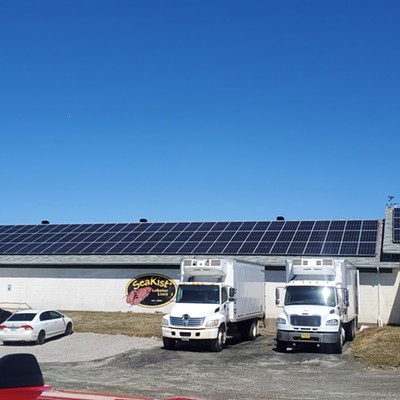Dense sensibility
It has recently become public knowledge that developers who own land in and around the Birch Cove Blue Mountain wilderness area wish to develop their lands into yet another suburban subdivision.
First of all, the city was planning to create a wilderness park in this area back in 2006. While the provincial government did its part in protecting some of the lands, Halifax Regional Council has done nothing since 2006. The land was zoned as Urban Reserve until 2033, presumably so that the city could work out a plan to protect it. Understandably, the process of protecting these lands is somewhat complicated as some of the land is owned by private developers and would have to be bought, unless a moratorium on any further development is put in place for this area.
I recall years ago talk of greenbelting around the city to control/limit any further unsustainable suburban development, which we arguably have more than enough of already. What happened to this idea? How much will it cost the city to provide services to these developments? Water, sewer, snow-clearing, transit service, road maintenance, police, fire fighting, et cetera. Compare this to how much it would cost to buy the the land in question from the developers. If the city hadn't waited so long, this could have been a lot cheaper to do. Now, however, the value of this land has increased considerably.
So what about putting a moratorium on development in this area? Halifax Regional Council has stated it wishes to create more density in urban Halifax, developing vacant lots and under-utilized sites and redeveloping old properties in the city. This would take some of the burden off our tired and overstretched transit system as people living on or near the peninsula are far more likely to take transit than those living in far out suburbs.
Not only that, but what about the health of the citizens of Halifax? Having more people living within walking or cycling distance of amenities such as restaurants, grocery stores and workplaces will benefit the health of those who take advantage of their conveniently located neighbourhoods. Also, fewer cars on the road every day will create less air pollution, require less road maintenance and will not worsen traffic conditions. The right choice here is a bit of a no-brainer.
There has also been a lot of talk about the need for more affordable housing in Halifax. Do these proposed developments help that cause? I think not. To live in one of these places you almost certainly need a car—strike one against affordability. Also, one has a hard time imagining that anything built in this beautiful area would qualify as affordable housing.
So all this leaves us with a choice to make. Do we want an ever-more sprawling, expensive to service/maintain and unsustainable city? Or do we want to protect the environment around Halifax, increase transit ridership, cut down on traffic and air pollution, promote active communities, add affordable housing and create more housing in already serviced areas of the city? —Nicholas White, Halifax
Cheating summer
Why do the mic jockeys on CBC Radio's afternoon show, Inane Street, insist all through the third week of August, when the temp is 30+, that summer is over? Because school kids are going to school in two weeks? Or, as they said on the 25th, because old Yawn Donnelly and the rest of the Information Boring crew are returning after a two-month vacation? True, listeners will be back to hearing the weatherman blamed for bad weather and praised for good (a joke that just NEVER gets old for the over-90 set), and sports (because nobody can get sports scores anywhere) and a five-minute interview yawned out to 15. But summer still doesn't end until September 22. Unless you work for CBC Radio. —T.H. Hatte, Halifax
Sick to the facts
I am concerned. I am concerned because, over the past couple of months, I have heard a few stories in the media related to suicide. The stories have been very accusatory toward the "system," which I don't think is fair. I have had two grandparents die of cancer, an uncle die of cancer and an uncle die of suicide. They all asked for help. They all received help. The help did not help. Not because the helpers didn't know what they were doing. The help did not help because they were too sick. The sick die. Whether it be because of cancer, stroke, heart attack, mental illness, whatever.
When my grandparents died I did not blame the doctors for their death, I blamed the illness. When my uncle hanged himself I blamed him and the mental illness he battled with. Where would I get off blaming the people who tried to help my uncle? We are all human. We all have good intentions (well, most do). Do we really think that there are mental health professionals out there who just choose not to help people? We have to understand that mental illness can be a fatal disease. Please stop blaming "the system." The system is good enough, the diseases are the culprit. —Jimmy MacLaw, Dartmouth
Re: "Redface"
Let's just get rid of all poet laureates ("Rebecca Thomas isn't asking nicely anymore," Reality Bites blog by Ashley Corbett, August 24). They all seem to be in a state of permanent outrage. —posted by RedRocketV8 at thecoast.ca
As they should be. This shit is outrageous. —posted by ruthie lewen
















